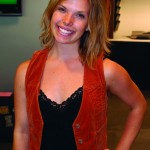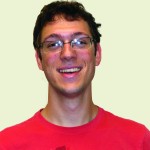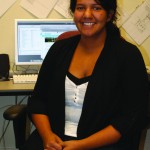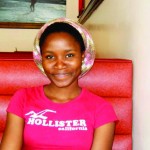I am often taken aback by the suggestion that a liberal arts education limits rather than expands the intellectual horizons of students. My non-academic friends often imagine that college professors enlist students in an ideological mission to remake the world. Such assumptions fail to appreciate the great diversity of academic thought and inquiry that students acquire across a well-planned liberal arts curriculum. Simply put, I believe a liberal arts education is the strongest bulwark our society offers against intellectual chauvinism of all varieties.
I do not teach at CC to indoctrinate students. My best courses ask difficult questions with no clear or simple answers. Responding to these questions requires intellectual humility, not certitude. Humility opens minds, certainty closes them. I believe that students learn best when they draw their own conclusions in an atmosphere free from intimidation. My best classes thus encourage students to question themselves, each other, the texts, and me.
Yet, I can’t deny that my teaching carries a bias. I offer a broad range of subjects including Balkan and Russian politics, the European Union, and many others. The villains in these courses are usually “social engineers,” leaders who are willing to use force or the power of the state to rearrange the way people do things. I have nothing against a clear vision of the future, but when this vision combines with a powerful state and a weak society, social and political mayhem results. The man-made tragedies of the last 100 years provide ample evidence of this.
I stress our responsibility to hold politicians accountable for their actions. I also hope to engender a healthy distrust for elite solutions engineered on behalf of society without its input. My research indicates that societies work best when political leaders are subject to a robust, nonviolent, and rule-governed contest for power. Most forms of political or intellectual monopoly eventually lead to rigid orthodoxy, self-dealing, and oppression. From my perspective, the best “-ism” is pluralism.
My courses implicitly celebrate liberal democracy and the importance of active citizenship. Well-informed, empowered citizens are better equipped to resist the more odious efforts of authoritarian social engineers. As Nobel Prize-winning economist Armatya Sen once famously observed, no democracy has ever suffered a famine. This is not a coincidence.
My greatest challenge, however, is in making the classroom a safe place for intellectual inquiry; a place where students can challenge received ideas. I start each class by explaining that my courses have no political litmus test to pass; I have no desire to replace past orthodoxies with my own.
I especially cherish my conservative students. It takes courage to defend conservative views on a traditionally liberal college campus. Yet, conservatives, while a minority in the classroom, are not as alone as one might think. Center-left views do tend to dominate class discussions, but only superficially. Most students enjoy engaging a full range of political perspectives. Indeed, the majority of my students, conservatives and liberals alike, use class discussions to begin the process of political formation, not to bring it to a close.
I’ve taught at a number of other top institutions — including Columbia, Tufts, and the University of Denver. Placed among the students I’ve taught at these schools, CC students are the most likely to prize their intellectual journey over their ideological destination; and they are least likely to assert their identity through adherence to some ideology. The biggest commitment at CC is to the process, not the outcome.
This has a lot to do with the daily rigors of the Block Plan. Political science students at CC typically read 75-100 pages a night and attend a three-hour seminar each day of the week. Trying to reconcile everything in this intense regime with a single received ideology is next to impossible; the format virtually forces us to pose open-ended questions.
CC makes a contribution to American democracy by producing good citizens. In a world that increasingly shoehorns size 10 facts into size 6 arguments, a CC education encourages a commitment to finding an honest fit. We do our job when this commitment remains a lifelong practice rather than a passing phase.
Beyond combating groupthink, the toughest classroom challenge is to hike safely along the ridgeline that separates political correctness from demeaning or intimidating speech and action. The correct metaphor for my classroom is not the “marketplace of ideas”; it is the family dinner table. Intolerance and hatred have no place at my table, especially if they make my students feel too insecure to sit down to dine.
However, keeping members of my family feeling safe and secure does not extend to protecting them from uncomfortable or controversial thought. As a faculty, we deal with controversial issues on a daily basis. Topics include gender, war, religion, sexuality, race, identity, class, and many others. Most of these discussions take us and our students outside our comfort zones. Put simply, at Colorado College, we often consider propositions that some might find offensive and objectionable. Many of us consider this to be part of our job.
There is thus a vital space to preserve between hateful speech that threatens, intimidates, or demeans members of our community and the sort of political correctness that stifles inquiry. It is extraordinarily hard to attempt to find and protect this middle space. Often the space does not exist and as a community, we are likely to make errors trying to find it. Yet we do need to risk the venture.
The norm of academic freedom and the institution of tenure, in particular, are thus absolutely crucial to our mission. They allow faculty and students to take more intellectual chances, encourage a diversity of views, and challenge ourselves in new ways. Just as students may feel intimidated by an over-opinionated and ideological professor, faculty — especially untenured junior faculty — may feel pressured by ideologically opposed students, and occasionally colleagues, to avoid controversial topics. Tenure and a firm commitment to the norm of academic freedom are thus crucial to building a community that values fearless intellectual inquiry.
More broadly, students gain from disagreements. Few economics majors will be converted to Marxism by reading a radical text, but they will become familiar with radical critiques of our society. Moreover, as students engage inconvenient facts and arguments, they will be better able to identify, defend, and if indefensible, change their own beliefs. My syllabi often incorporate a broad range of ideological viewpoints, and I take as a compliment that I have been at different times accused of having both a liberal and a conservative bias in my classes.
A liberal arts education teaches us humility before the great questions of our disciplines. As scholars, CC professors cannot but have some bias in how we personally answer these questions, but this bias rarely translates into expectations of orthodoxy from the students. As they progress through their majors and travel across disciplines, students engage a diversity of ideological viewpoints and analytical modes of inquiry. By the time they graduate, they are much better able to identify and defend where they stand. But most important, CC students learn that open inquiry does not stop with a diploma. It’s a lifelong engagement.
Reporting and photographs by Judith Reissmann ’12
Q: Does CC encourage open inquiry in the classroom?
A: I think it’s one of the places in my life where I’ve had the most open conversations. It reminds me of my FYE political science class. I had two blocks where one professor was very, very right wing and the other professor was very left wing. It was interesting because it catered to an open perspective of what they were trying to get at in the same class.
—
Q: What can CC faculty do to encourage more open inquiry?
A: Usually for me, not wanting to speak up has less to do with what the professor will think than what the other students in the class will think. By
making sure that everyone knows each other well in the classroom, I think that people become more comfortable in general and I also think it levels the playing field
—
Arielle Gross ’12
A: I think that professors need to make certain that they are very aware of their own viewpoint on a subject. They should pay attention in class when they’re talking about something that they probably feel strongly about. They should take care not to privilege that point of view to their students. Also, I would encourage CC professors to have more of a listening ear; to let a student speak their piece, and let their students be heard.
—
Senani Mamba ’12
A: I feel that international students almost always think differently and see things differently because of what they have been exposed to. Faculty should find out where their students are from in the world, so they can figure whether or not the student could have different views, and ask them about their views to make them realize that it is okay to have a different opinion.
More student interviews are available here.



